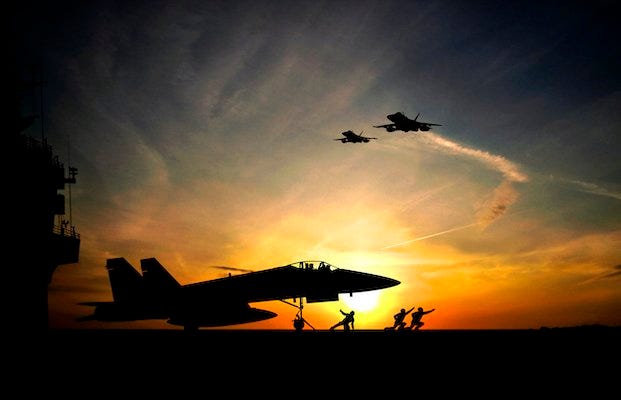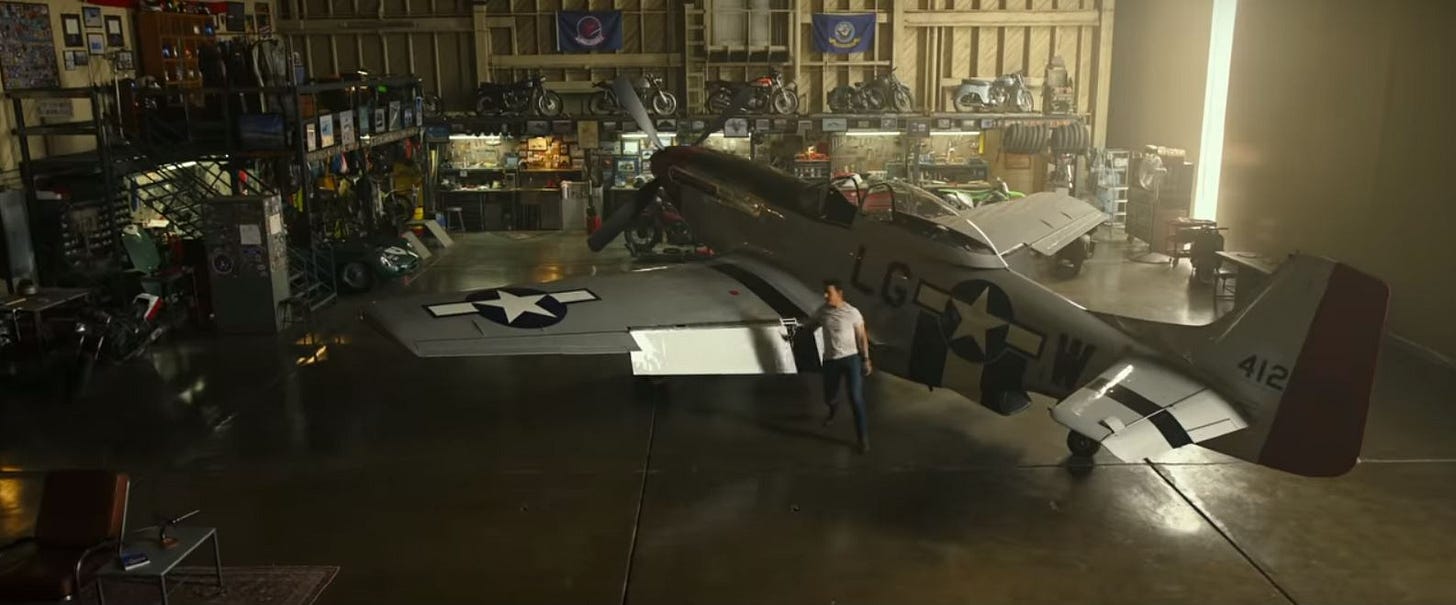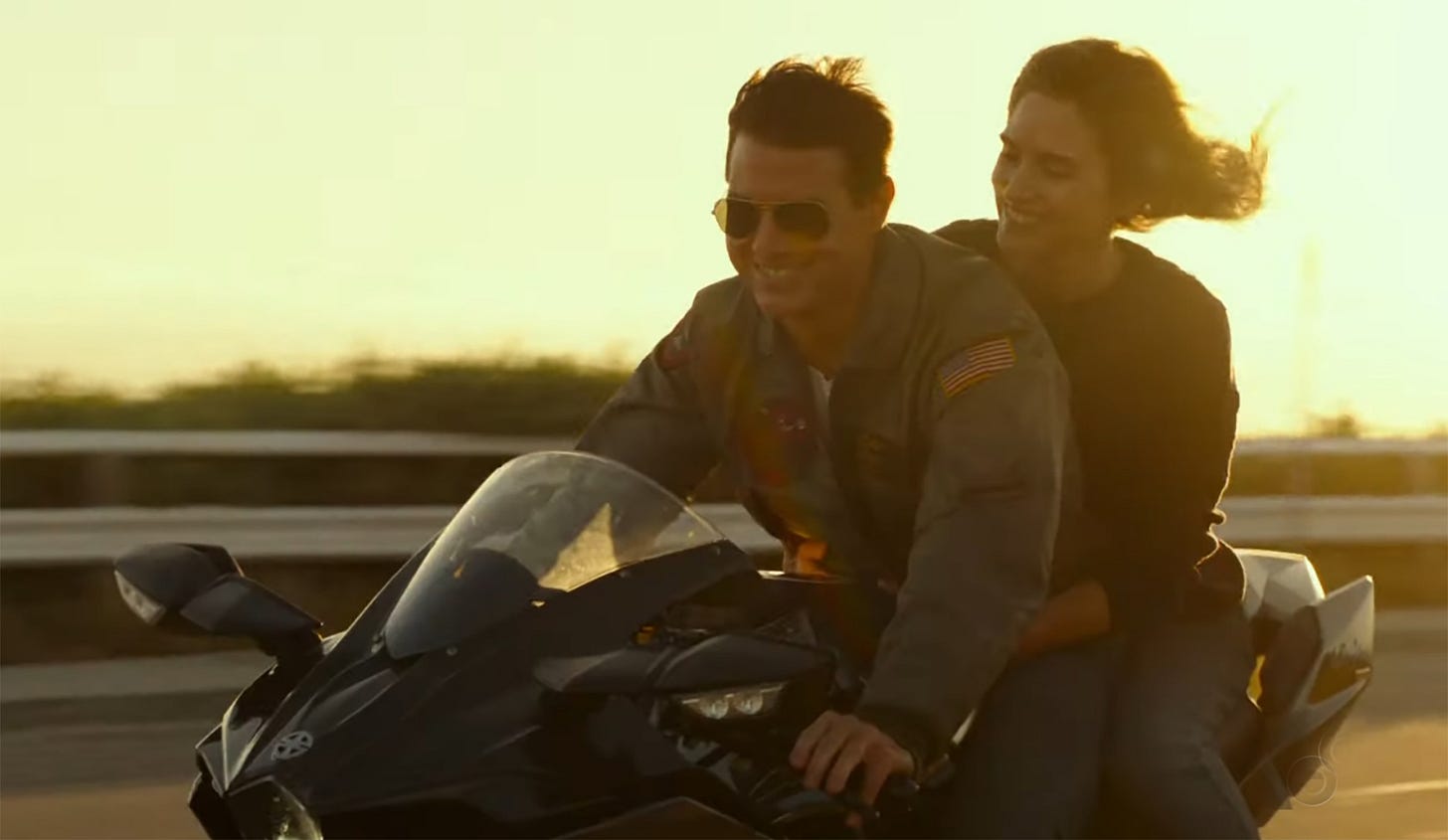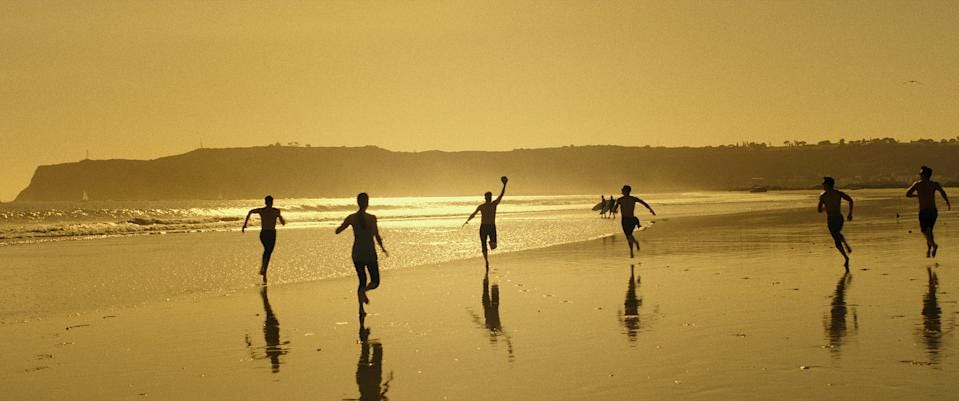Reviewing 'Top Gun: Maverick' and Heidegger's 'Only a God can save us' interview
In virtually every aspect of culture which still moves and inspires us today, one can trace ancient or philosophical ideas and themes. The best of everything is that which lasts.
In my recent conversation with Jash Dholani on Nietzsche and Christianity, we discussed his observation that the films and persona of Tom Cruise are examples of Nietzscheanism in action.
In what Jash describes as his high-agency films, Cruise plays characters who operate on ‘the bleeding edge’ of crisis. There they discover “whether crisis brings out one’s nobility or cowardice”. Like Nietzsche’s Superman, these protagonists have to walk a tight-rope at great risk in order to make something higher of themselves.
The reason why Cruise’s latest Top Gun film so resonated with so many people, is the same reason why Nietzsche resonates with young people searching for meaning and genius today.
In the days of the last men and the great herd inflamed by resentment and ignoble impulses, Nietzsche reminds us of the search for something higher than cheap moralism and egalitarianism.
Top Gun does the same. The very title is politically incorrect and anti-equity.
But I would also suggest that there is also something of Nietzsche’s successor, Heidegger in the film, particularly in Heidegger’s idea that truly authentic life must take place within what he called ‘the fourfold’.
To ‘dwell’ in the world fully, one must live consciously with earth and sky, and with divinities and mortals.
What mean
Heidegger does not mean the fourfold simply metaphorically. He is being largely literal.
He lived in a simple cabin, close to the earth, open to the fresh sky of parts of Germany where one was still able to see the stars, and their sense of all that was above and beyond.
Living with the mortals meant an openness to the ever-present destiny of death.
Living with the divinities is perhaps more complex and mysterious.
To understand what Heidegger means here, I would turn to the final interview he gave to the German newspaper, Der Spiegel, most often given the title ‘Only a god can save us’. The important statement Heidegger makes in the interview is the following:
Philosophy will be unable to effect any immediate change in the current state of the world. This is true not only of philosophy but of all purely human reflection and endeavor. Only a god can save us. The only possibility available to us is that by thinking and poetizing we prepare a readiness for the appearance of a god…
The ‘fourfold’ was Heidegger’s way of turning from ‘purely human reflection’ or technical philosophy, to a ‘thinking or poetizing’ that allows a god to appear, to bring meaning where meaning has been lost.
I would suggest that by living on the real earth, open to the sky, amongst mortals, we then ready ourselves for this god to appear to us.
How does this then relate to Top Gun?
The Top Gun protagonist dwells in the fourfold in a vivid way.
First of all, there is an extreme openness to the sky, to the sense that technology is not mere functionality but can allow us to explore, to go faster, to soar.
Second of all, there is equally a dwelling upon the earth. The earth is the grounds of flight.
We see Maverick first working on his own plane, in his own hangar/home.
The famous motorcycle shots emphasize the sense of connection to the earth in order to fly.
Annoying his superiors, Maverick allows his team to spend time on the beach. The whole scene is a celebration of health and the beauty of the physical world.
Mortality is equally one of the central themes of the film.
The death of the Goose, and the choice to save ‘the one’ (a theme through many Cruise films) even if not in line with the overall mission, drifts throughout the story.
Maverick’s constant plea, “Talk to me, Goose”, is the urge to live among the mortals, and to know the adventure through the constant risk of flying in the sky, and thus value and affirm life.
Of course, there is also the death of Maverick’s protector and friend, Iceman.
There is another scene which intrigues me greatly and which is not often discussed much - the boat scene with Maverick and his love interest, Penny.
Maverick notes that just because he is in the Navy does not mean he can sail.
The seas become somewhat rough, with a notable American flag constantly visible.
Is America itself sinking?
How is it, after all, that this hit action and romance film features two stars both over the age of 50?
Perhaps this song of a film is beautiful because it is a swansong.
What of the divinities?
I am not speaking here of a contrived reference to Jesus, but it is hard not to see something of a theme of redemption, as Rooster forgives Maverick, becomes an adopted son, as Maverick suffers in a sense throughout the film, and carries a burden in order to complete the mission, but also guide his team to a kind of wholeness or blessedness.
Finally, what is most Heideggerrian of all, is the complete lack of self-conscious irony in the film.
It ‘wants’ life and glory, the things we have lost.
The film, as it remembers Goose, as it sails the sea and soars to the sky, waits for God.








